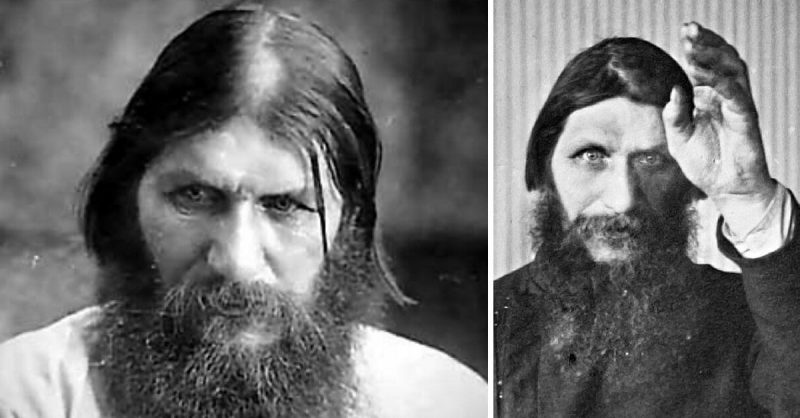Grigori Yefimovich Rasputin was born in 1869 in a remote Siberian village but died in a Russian palace on 30 December 1916. Despite his alleged magical powers, he was murdered by Russian aristocrats… or then again, maybe not.
Rasputin married at 18 and had three children, but he abandoned his family after being charged with horse theft and rape. Before fleeing, he had already earned a reputation as a womanizer, a drunkard, and a hedonist, so what happened next was astonishing.
He spent years wandering around Siberia where he often sheltered in monasteries. In 1893, he claimed to have had a spiritual awakening after receiving a vision from Our Lady of Kazan.
The priesthood called him a strannik (a holy mendicant wanderer) though others called him a yurodiviy (a religious nut).
He returned home in 1902 to start a church, but his teachings were so radical they kicked him out. Rasputin believed that the only way to purge sin was to commit sin, then wholeheartedly confess. After inviting many women to sin with him, he quickly fled to Kiev in 1903.
There he toned down his teachings and impressed church authorities with his oratory and grasp of scripture. Sometime in 1905, he arrived in Petrograd (now St. Petersburg), then the capital of the Russian Empire. His timing couldn’t have been more perfect.
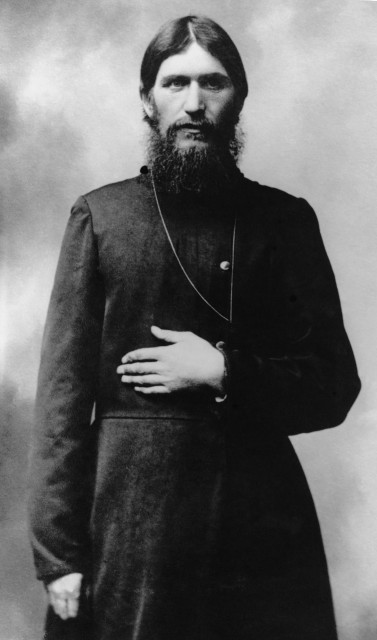
Unlike the rest of Russia, Petrograd was more exposed to Western Europe and more open to foreign ideas. Corruption scandals in the Russian Orthodox Church also weakened their credibility, so people began looking into alternative religions.
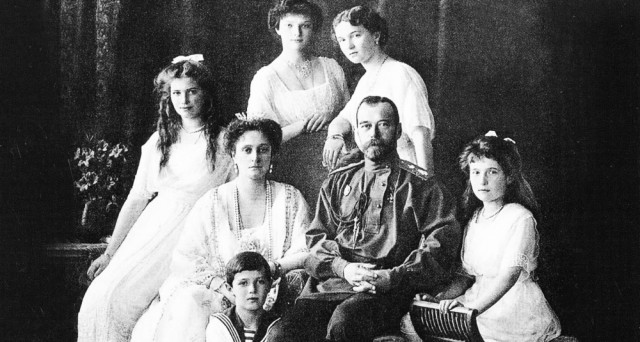
With his hypnotic eyes, his sensual voice, and his reputation as a miracle healer, doors opened for Rasputin – which was how he met the imperial family.
Nicholas II and Alexandra had only one son, Alexei. Unfortunately, the prince was a hemophiliac, and they kept his condition a secret to ensure the dynastic succession. In 1907, three-year-old Alexei became very sick despite treatments from the best doctors. So Rasputin knelt beside him, prayed, and a few hours later, the heir apparently recovered.
After that, Rasputin practically owned the imperial family. He became so important that he was given 24/7 protection by the secret police, but what they found shocked them. When he wasn’t lecturing or curing, Rasputin was at bars and/or brothels.
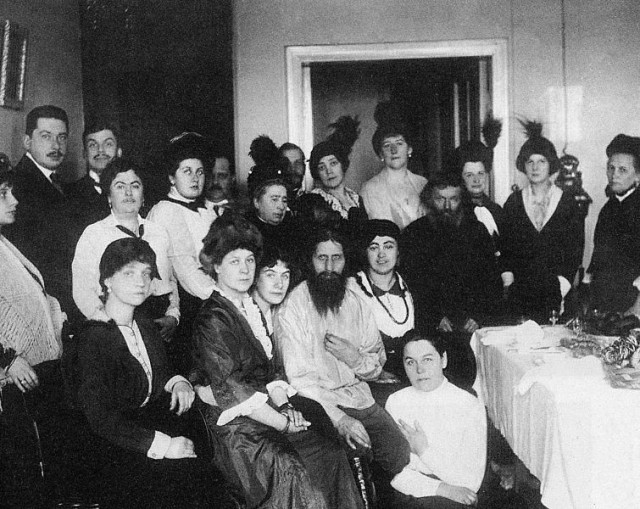
Nor did he limit himself to prostitutes. Upper-class women, including aristocrats, also enjoyed his attentions. The czar and czarina refused to believe the reports, however, convinced they were plots to discredit their savior.
Then WWI broke out in 1914. Nicholas went to the war front despite Rasputin’s pleas to keep Russia out of the conflict. With the czar gone, his influence on the Empress grew, and he wanted his friends in office and his critics out.
Outside the imperial palace, he claimed to be the real emperor, which seemed true. In 1916 alone, Russia had four prime ministers, four interior ministers, three foreign ministers, and two war ministers.
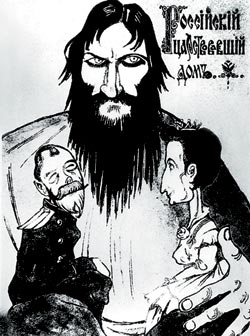
Rasputin’s boasts and his lavish, hedonistic lifestyle were all the press talked about. In their eyes, Russians were dying for a war between the Germans and the British. About as many were dying from food and fuel shortages, while a very few lived the high life. And since Alexandra was an Anglo-German, who depended on Rasputin, they became easy scapegoats.
On 19 November 1916, Vladimir Purishkevich (a politician) addressed the Russian parliament for two hours, blaming Rasputin for all the country’s problems. Purishkevich argued that Russia needed to get rid of Rasputin and end his influence on their Anglo-German empress.
Listening to him was Prince Felix Felixovich Yusupov, the czar’s nephew-in-law. The aristocrats were rightly afraid. Ever since America’s founding and France’s revolution in the 1700s, royal power was weakening as people called for greater political freedoms.
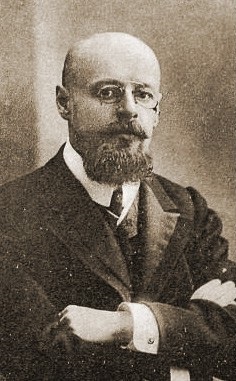
So Yusupov invited the mystic to his house claiming that his wife, the Princess Irina, suffered from nymphomania. Rasputin fell for it, assuring the prince that he could cure the woman’s problem. In his memoirs, Yusupov described in detail how he decorated his basement and filled it with cyanide-laden pastries and wine.
Rasputin arrived at 12:30 AM on December 30 and was told that Irina would join them shortly. He then spent the next two hours eating and drinking everything, but to no effect. Annoyed, the prince went upstairs where Purishkevich and Grand Duke Nicholas Mikhailovich were waiting. The Duke handed the prince his revolver, so the latter returned to the basement and shot Rasputin in the stomach.
But when Yusupov bent down to check on him, Rasputin pushed him off, climbed the stairs, and staggered out. The conspirators ran after him, and Yusupov shot him again, but Rasputin kept crawling away.
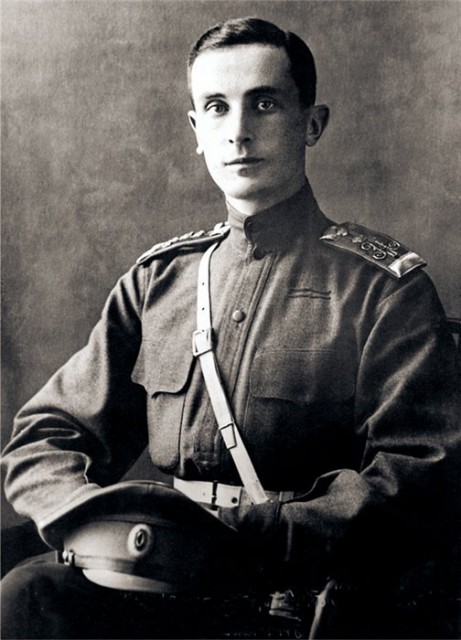
So they beat and stabbed the mystic, tied him up, dragged him to the Bolshoy Petrovsky Bridge, and dumped him into the Malaya Nevka River. When the authorities fished him out two days later, they found that he had lived long enough to break his restraints before finally drowning.
Russia rejoiced, but the imperial family did not. Shortly after Purishkevich’s speech, Rasputin wrote to the czar predicting his own death. He said that if he were killed by commoners, the monarchy would endure. But if aristocrats were responsible, the Romanovs would die within two years. Eighteen months later on 17 July 1918, the imperial family was murdered by the Bolsheviks.
While Yusupov took the credit, the autopsy report suggests otherwise. They found no poison in Rasputin’s body and bullets from two different guns. The fatal shot to the head came from a Webley unjacketed revolver that only British agents had at the time.
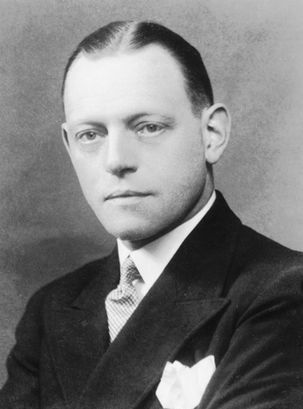
Some historians suspect Lieutenant Oswald Rayner, the British MI6 agent who befriended Yusupov when the two were at Oxford University. The British were desperate to keep Russia in the war and had Rayner tail Rasputin because of the latter’s anti-war stance. It’s therefore believed that Rayner may have been at Yusopov’s Palace to ensure Rasputin’s death.
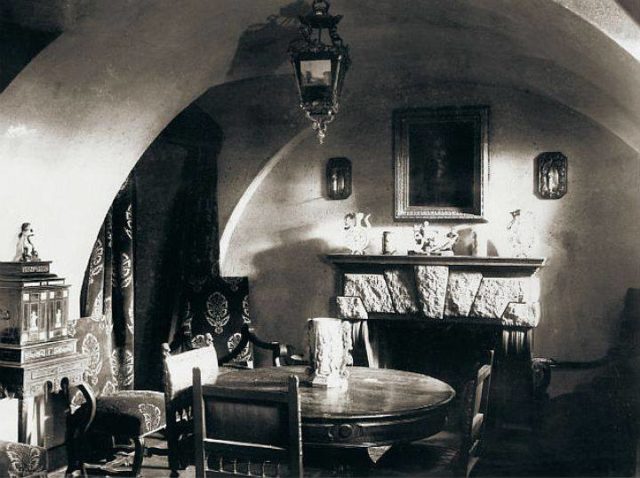
The czar did interview the British ambassador after Rasputin’s body was recovered, but what they discussed isn’t known.
Neither can it be known if Rasputin really had magical powers, but if he did, they didn’t protect him. Nor did he die in the way legend (based on Yusupov’s account) describes it.
